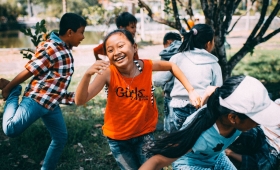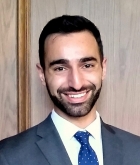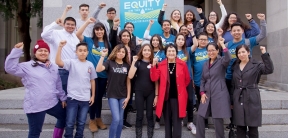When you think of a “collaborative” do you imagine people sitting around talking about a problem but not actually doing anything about it? A group of health and environmental funders turned that notion on its head last year by creating the Lead Funders Action Network, partnering with the Health and Environmental Funders Network (HEFN). The explicit charge of the group was to identify tangible and practical ways to work collaboratively and strategically to address gaps in the field of childhood lead poisoning and make philanthropic investments more synergistic to advance the prevention of the disease. The members, which included national, regional, state, and local foundations, acknowledged the urgency of the issue of childhood lead exposure and vowed to waste no time circling the problem but rather to focus on solutions.
Lead poisoning is a ubiquitous, yet solvable threat to children’s health and well-being. The disease affects hundreds of thousands of children each year with tragic consequences for their school performance and success in life.
Foundations are increasingly engaging in policy-and systems-level change to advance their health equity goals. One way to amplify these efforts is through partnerships across grantmaking organizations.
Convened initially by The JPB Foundation, the Joyce Foundation, and the Robert Wood Johnson Foundation, the Lead Funders Action Network’s desire for concrete actions came to fruition at the first meeting when 12 foundations identified three areas for collaboration:
- Finding and disseminating strategies for financing lead remediation – recognizing that the most important task is to arrest exposure before it occurs and that resources were sorely lacking to carry out this task at the scale needed.
- Identifying legal mechanisms, from litigation to administrative rules, as an important pathway to system level change.
- Expanding multi-sector place-based efforts, such as those that are making data about the problem more transparent, those that are building community power to drive policy change, and those that spur investment in housing, water, and other sources of lead.
The group also pinpointed an unintended consequence of the surge of lead policies introduced across the country on the heels of the Flint crisis. Communities most affected by the problem were frequently excluded from the tables where policy decisions were happening – left out of the policy formulation and decision-making process.
In the months that followed, The Joyce Foundation invested in an Equity Assessment of Lead Policies; The New York Community Trust invested in a scan of legal strategies; and The JPB Foundation invested in a scan of financial strategies and a toolkit for financing lead remediation. The Robert Wood Johnson Foundation and The New York Community Trust invested in coaching and funding to nine places to advance lead policies, and also funded state and local cost benefit analyses to drive home the massive benefits of prevention relative to the costs of inaction.
These projects were developed collaboratively, which offered opportunities to leverage each other’s resources and insights. The group worked nimbly meeting by phone, webinar and in person through work groups, with a sense of deserved urgency and an eye toward action.
In addition to the projects and grants the foundations are doing together, many of the funder partners including the Community Foundation for Greater Buffalo; the Community Foundation of Herkimer and Oneida Counties; the Fred A. and Barbara M. Erb Family Foundation in Detroit; The Heinz Endowments in Pittsburgh; Mt. Sinai Health Care Foundation in Cleveland; and The New York Community Trust, are advancing local efforts with resounding success. Other participating funders and affinity groups include the Cleveland Foundation, Community Foundation of Greater Flint, The George Gund Foundation, the Charles Stewart Mott Foundation, Environmental Grantmakers Association, the Roy A. Hunt Foundation, Spring Point Partners, LLC, The Forbes Funds, The Pittsburgh Foundation and the Water Foundation. Look for more information about these groups’ work in a future blog post.
For more information about the Lead Funders Action Network, email cglass@hefn.org. Funders, donors and philanthropic advisors interested in and/or making grants related to reducing and eliminating lead exposures can join a lead funders listserv by clicking here. Funders are invited to an Oct. 10, 2019, Working Group meeting of the Lead Funders Action Network. Learn more.
Daniel Cohn is the vice president of strategy for Mt. Sinai Health Care Foundation.
Rebecca Morley is a consultant with the Robert Wood Johnson Foundation.




